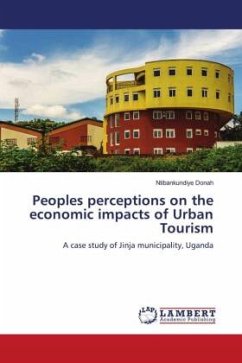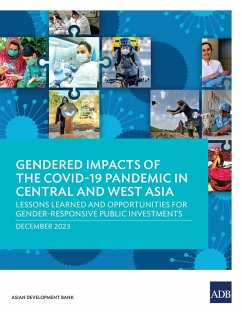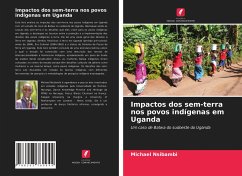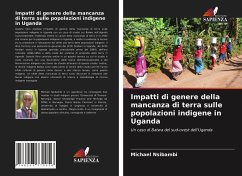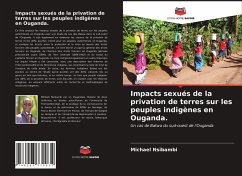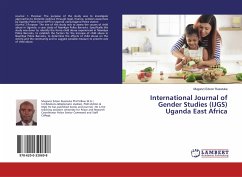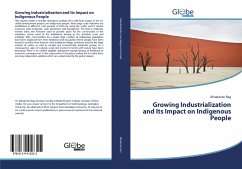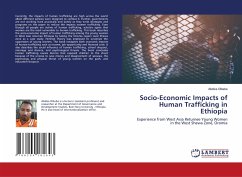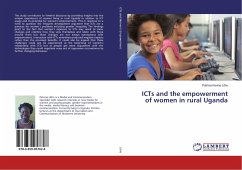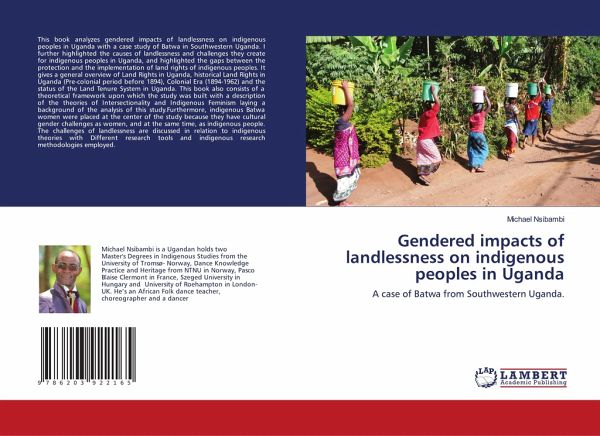
Gendered impacts of landlessness on indigenous peoples in Uganda
A case of Batwa from Southwestern Uganda.
Versandkostenfrei!
Versandfertig in 1-2 Wochen
36,99 €
inkl. MwSt.

PAYBACK Punkte
18 °P sammeln!
This book analyzes gendered impacts of landlessness on indigenous peoples in Uganda with a case study of Batwa in Southwestern Uganda. I further highlighted the causes of landlessness and challenges they create for indigenous peoples in Uganda, and highlighted the gaps between the protection and the implementation of land rights of indigenous peoples. It gives a general overview of Land Rights in Uganda, historical Land Rights in Uganda (Pre-colonial period before 1894), Colonial Era (1894-1962) and the status of the Land Tenure System in Uganda. This book also consists of a theoretical framew...
This book analyzes gendered impacts of landlessness on indigenous peoples in Uganda with a case study of Batwa in Southwestern Uganda. I further highlighted the causes of landlessness and challenges they create for indigenous peoples in Uganda, and highlighted the gaps between the protection and the implementation of land rights of indigenous peoples. It gives a general overview of Land Rights in Uganda, historical Land Rights in Uganda (Pre-colonial period before 1894), Colonial Era (1894-1962) and the status of the Land Tenure System in Uganda. This book also consists of a theoretical framework upon which the study was built with a description of the theories of Intersectionality and Indigenous Feminism laying a background of the analysis of this study.Furthermore, indigenous Batwa women were placed at the center of the study because they have cultural gender challenges as women, and at the same time, as indigenous people. The challenges of landlessness are discussed in relation to indigenous theories with Different research tools and indigenous research methodologies employed.




